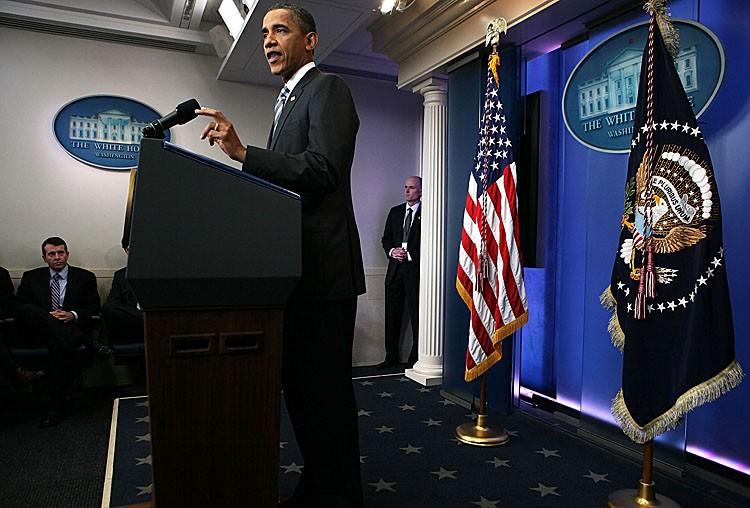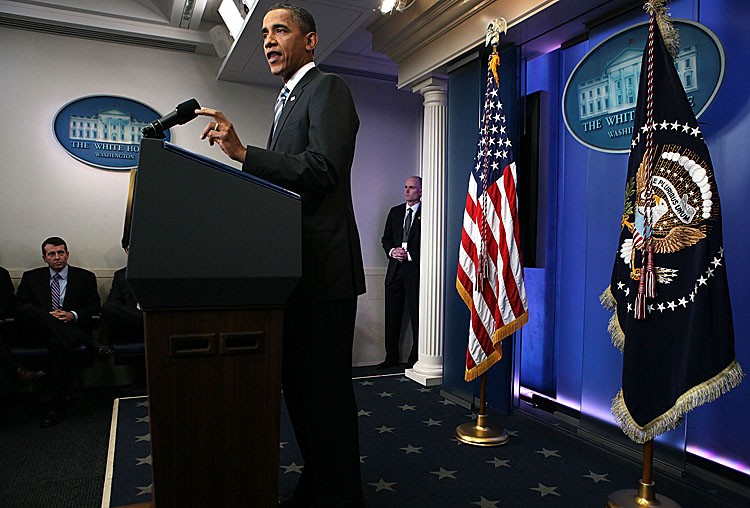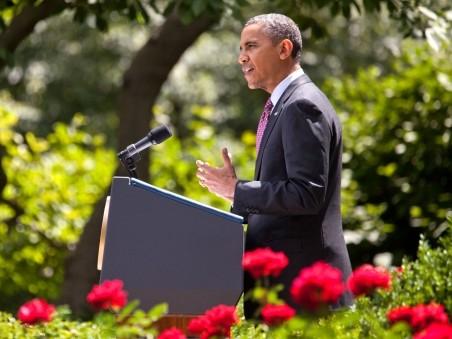House Republicans Press On With Balanced-Budget Amendment
House Republicans reaffirmed their commitment on Monday to introduce a proposal requiring Congress to approve a balanced-budget amendment to the Constitution before raising the debt ceiling.
|Updated:





